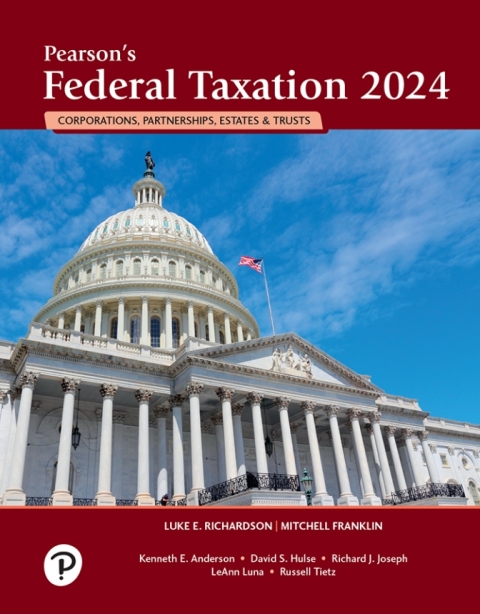Gaylord Gunnison (GG) died January 13, 2023, and his gross estate consisted of three propertiescash, land, and
Question:
Gaylord Gunnison (GG) died January 13, 2023, and his gross estate consisted of three properties—cash, land, and stock in a public company. The amount of cash on the date of his death was \($10.9\) million. On January 13, 2023, the land had a fair market value of \($1\) million, and the stock had a fair market value of \($2\) million. On July 13, 2023, the fair market values of the land and stock were \($1.1\) million and \($1.6\) million, respectively, and the cash remained at \($10.9\) million. Assume, for simplicity, that the estate has no deductions and GG made no taxable gifts. GG willed all of his property to his daughter, Gilda, who anticipated that, beginning in July 2023, the stock would appreciate at the rate of 9% per year before taxes. She anticipates selling the stock on or about July 13, 2028. Assume that the land’s fair market value will remain at \($1.1\) million through 2028 and that she anticipates retaining the land for the rest of her life.
Considering both income tax and estate tax effects, compare after-tax wealth using the alternate valuation date with the date of death to value the estate. Which date should the executor elect? For simplicity, assume that the cash is not invested. (Incidentally, the factor for the future value, six years hence, at 9% is 1.677.) Prepare a worksheet on which you calculate the amount of after-tax wealth using the two possible valuation dates. Assume that the gain will be taxed at a 20% capital gains rate and will be subject to the 3.8% tax on net investment income (i.e., at a 23.8% total rate).
Step by Step Answer:

Pearsons Federal Taxation Corporations Partnerships Estates And Trusts 2024
ISBN: 9780138101787
37th Edition
Authors: Luke E. Richardson, Mitchell Franklin





